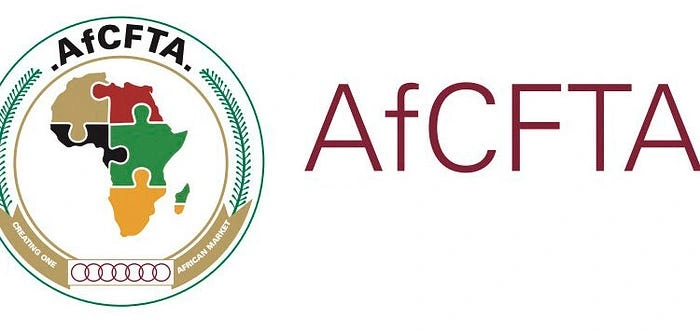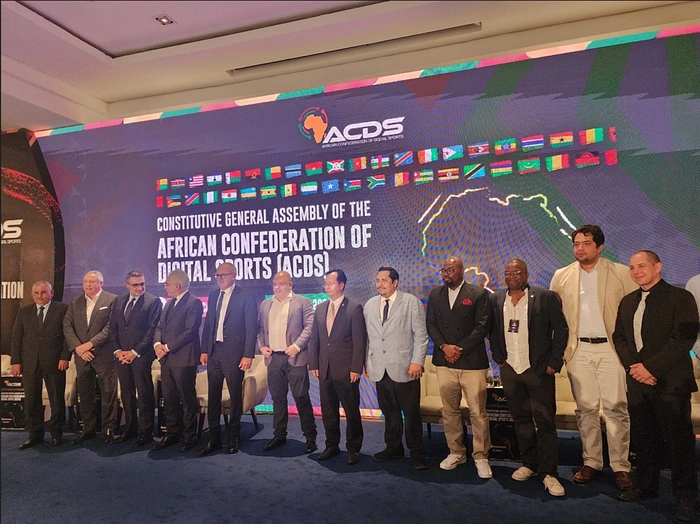HOW SPORTS CAN BE EFFECTIVELY IMPLEMENTED INTO THE AfCFTA
An innovative idea on how esports can be used in the implementation of the AfCFTA
KEYWORDS: Esports; Free Movement of Services; Free Movement of People; Trade Barriers; Regional Cooperation; Pan-Africanism; Social Integration; Employment Opportunities
The African Continental Free Trade Agreement (AfCFTA) has created the largest free trade zone in the world by country participation, i.e., 34 African countries. This is a historical point for the continent as such, it is the beginning of a workable framework for a modern African economy that would allow the free movement of persons, goods, or services and also promote economic integration within member states.
However, we shall channel this article towards a particular type of sport that is still in its infant stage in Africa and growing rapidly; esports, which may also be referred to as competitive video gaming.
We shall also focus our attention on how esports can be a tool for the implementation of the AFCFTA by promoting Pan-Africanism, promoting integration, and creating employment opportunities. We will then conclude with the significance of esports for the implementation of the AfCFTA and the continent as a whole.

The African Continental Free Trade Area (AFCFTA) is set to positively impact the African esports industry. The AFCFTA aims to establish a unified marketplace for goods and services throughout Africa, which will simplify the process of importing and exporting products and services for African esports organizations. This will contribute to the growth and competitiveness of the African esports sector on a global level.
According to Wikipedia, esports (also known as electronic sports) is a form of competition using video games. Esports often take the form of organized, Multiplayer video game competitions, particularly between professional players, either individually or as teams.
However, organized competitions have long been a part of video gaming, they were largely between amateurs until the late 2000s, when participation by professional gamers and spectatorship in these events through live streaming saw a large surge in popularity.
Nevertheless, the African market is still in its infant stage, but it has booming potential for a youthful population and trending consumption for its target audience (young Africans). Reports have defended the feasibility study of this industry on the continent of Africa.
TechPoint Africa argues that the consumer population projection will favour Africa, with a combined consumer and business spending projection of $6.7 trillion by 2030. The time is now for Africa to look inward for solutions to the continent’s economic woes. The sports, media, and entertainment industry, i.e., esports, is one space where the continent continues to show promise. Statista even predicts that it will be worth $1.87 billion globally by 2025
So far, there are three innovative ideas for the implementation of the AfCFTA through esports for the sake of this article: the promotion of pan-Africanism, Social integration, and employment opportunities. Recognizing these ideas, we shall discuss them as follows.
Promotion of Pan-Africanism
One of the major ways to promote the implementation of the AfCFTA is to promote the idea that people of African descent have common interests in regard to esports. Pan-Africanism in video gaming may come in different forms, such as game development and competitive gaming. Developing the production and distribution of Afrocentric games for the consumption of esports or competitive gaming can contribute immensely to the implementation of the AfCFTA.
These are games that are of African heritage and international standards that can then be distributed for competitive gaming on the African continent. This would help in having a unified esports association with a single channel of goals, mission, and vision rather than the scattered bodies of associations we currently have.
In doing this, esports businesses or companies can register for African tournaments, participate with their teams, and move around Africa, which would provide the progressive implementation of the free movement of persons, rights of residence, and rights of establishment within Africa. It would also help esports athletes or professionals to be able to settle anywhere within the continent as their contract demands.

Constitutive General Assembly of the ACDS
For example, in the sports arena, rather than exporting our human resources (professionals, talents, gamers, athletes, footballers, and so on), local investment in sports like esports can provide the required infrastructure to ensure that African athletes can thrive right here on the continent, which would in turn place African esports at par with the likes of Asian and American Esports.
Christina Gaugh (2019) states that the gaming industry revenue from console games in Nigeria hit $5.3 million in 2018, and by 2023, it will more than double to $12 million. Furthermore, Ingressive argued that global gaming revenue is set to increase to $174 billion by 2021. If Nigerians/Africans can spend $122 million on games that are not African-themed in 2018, why can’t they spend more on games that are African-themed?
There is an unspoken love for buying Nigerian-made products to support the culture and grow the naira.
Social Integration
Esports may have been a conventional sport in the past, but it has grown and is fast growing into a multibillion-dollar industry in its own right.
According to TechPoint, the industry was worth over $1.1 billion in 2020, growing annually at about 15.7%, with $822.4 million in revenue from media rights and sponsorships. Undoubtedly, sports offer a high potential for social integration, especially on a continent like Africa that is so enthusiastic about esports.
Esports have been used globally in the contemporary age as a tool for social integration in many projects and programs. The more esports tournaments created for Pan Africanism on African soil, the more Africans would experience social integration, and the more global investors, brands, and media outlets would gain attraction.

Nevertheless, Newzoo affirms that about 60% of Africa’s population is under the age of 25, making it the youngest and largest population in the world. The high rise in the youthful population is a big opportunity for the continent, especially with the adoption of the internet and information technology in our demography. With over 40% internet penetration, the future is bright for the continent.
The Newzoo report also suggests that there are over 700 million gamers in Africa, Europe, and the Middle East combined. It is common sense that gamers in Africa would increase by the millions, with potentially more joining in the near future.
This then brings us to the question, Why is esports a suitable tool for integration? Well, it is quite simple because:
It unites gamers of different races, cultures, genders, and ideologies to engage with one another
It follows uninformed rules and norms
Language is never a barrier to communication, as it is in other parts of our social lives. In fact, on the African continent, the Pidgin language is spoken and understood by most African countries across the continent
Gaming engagements increase the value of fair play, respect, and regional understanding, which helps to create an atmosphere of familiarity.
Employment Opportunities
Esports on African soil vary way beyond just playing video games, even if it is one of the major career paths in the industry. With esports quickly becoming a billion-dollar industry, more fantastic jobs are becoming available beyond gaming.
There are limitless opportunities for upcoming talent in the esports world, and this can help in the implementation of the AfCFTA. Our society is well dominated by digital trends, with a high level of unemployment and creativity, making it easy to see why esports can thrive like it does in Europe or Asia.
Esports is all about technological sports through the lens of competing in video games and being on the digital map. This is mostly welcome among the younger demographic, such as students (secondary schools, higher institutions), fresh graduates, and unemployed youth with a high level of creativity and a passion for sports.
The esports industry is still in its infancy stage, especially in Africa, making it an ideal job for entrepreneurs/companies like Gamr, Solo, Mobile, Ompire, and many others to make it grow. Entrepreneurs are designing and building an industry that has never existed before. It needs professionals who can continue to push technology, recruit the best players in the world, and find companies willing to sponsor tournaments.
Esports enthusiasts with an entrepreneurial mindset are needed to help push the industry over that $1 billion revenue barrier. However, aside from entrepreneurship as a career, there are many opportunities esports has to offer that would boost the free movement of people, services, local infrastructure, production/distribution of games, and help implement the AfCFTA across the continent.
Career opportunities such as content creation (written and visual), game development, software designing, team management, coaching, esports consultancy, business development, tournament organizing, event management and planning, sales and marketing, social media influencing, shout casting, and so on.
In other words, the creation of employment opportunities in the esports industry on the continent would promote social integration and define the concept of Pan-Africanism in the global view of Africa as a continent.
Innovative gaming equipment and merchandise can be produced and distributed as a form of trading different products and services within the industry, which would in turn help decrease the importation of significant tools or gadgets into Africa and also increase exportation within and outside the continent.
Conclusion
After all that has been said so far, it is imperative to understand that with consumer population projections favouring Africa and a combined trade and consumer spending projection of $6.7 Trillion by 2030, it will be near impossible to unlock the true value of the AfCFTA without Africa first fixing its infrastructure deficit as relevant to the esports industry.
In conclusion, for esports to be implemented into the AfCFTA, we have highlighted three central ideas in this paper, which are to promote Pan-Africanism, social integration, and the creation of employment opportunities. We have also examined these points objectively, as they would help boost the intention of free movement of persons, rights of residence, and rights of establishment within Africa. It would also help reduce the stress of huge tariffs for traders and consumers on a large variety of trades within the continents.
However, any initiative like esports that welcomes the free movement of persons, goods, or services within Africa and promotes intra-African investments and cooperation on intellectual property or ideas is a huge step toward implementing economic integration.
Like this project
Posted Sep 5, 2023
KEYWORDS: Esports; Free Movement of Services; Free Movement of People; Trade Barriers; Regional Cooperation; Pan-Africanism; Social Integration; Employment Opp…
Likes
0
Views
5
Clients
Freelance








